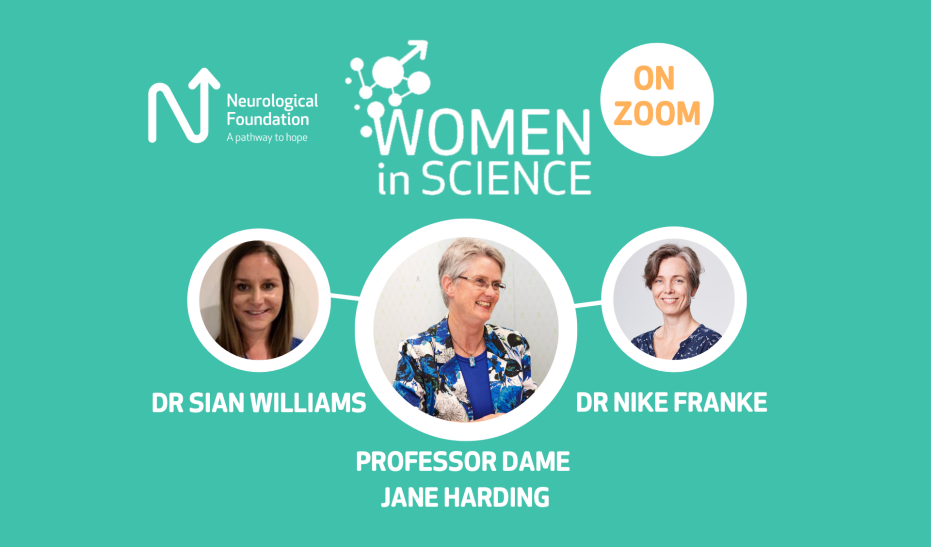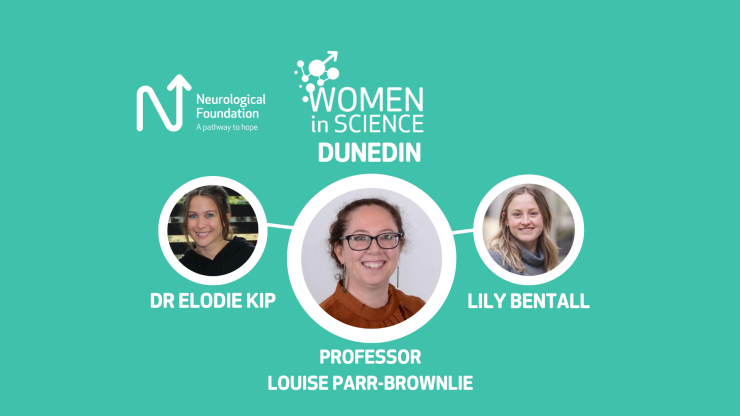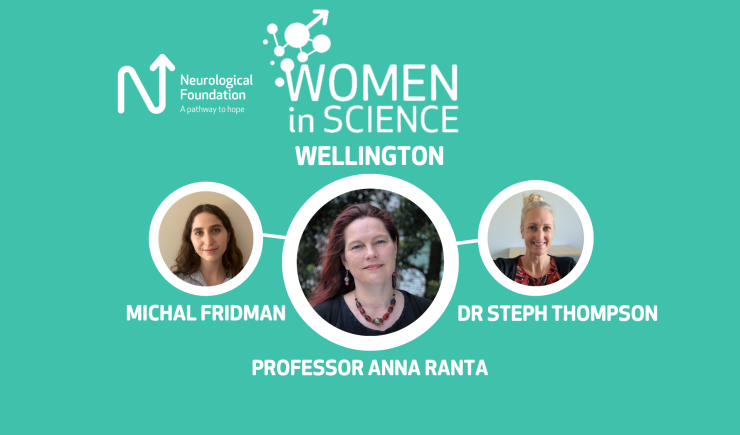WOMEN IN SCIENCE
The Women in Science event series is an opportunity to learn more about the brains behind leading research happening right now in New Zealand. This ‘behind the scenes’ look into the careers, experience, passion for neuroscience and vision for hope of a fascinating group of leading and emerging researchers is a limited opportunity to learn about what’s happening in the New Zealand and the global neurological science sector. The series, hosted by Neurological Foundation’s Head of Research Dr Sarah Schonberger, gives us the chance to bring you, our amazing supporters, a little bit closer to the researchers and learn more about the work that your support makes possible.
We’re kicking off this popular series by celebrating three incredible wāhine researching in the field of neonatology - a subspecialty of pediatrics that consists of the medical care of newborn infants, especially the ill or premature newborn.
First up on the calendar is Distinguished Professor Dame Jane Harding, a clinician scientist and specialist neonatologist, and her incredible colleagues. Professor Harding and her wider team, have been the recipient of many awards, including recently the Prime Minister’s Science Prize for their research into low blood sugar levels in babies. This ground-breaking research resulted in the development of a simple yet effective sugar gel treatment that has been adopted all over the world, with far-reaching benefits for our smallest loved ones.
Professor Harding will be joined by two of her colleagues from Auckland University’s Liggins Institute, Dr Nike Franke and Dr Sian Williams.
Originally from the Netherlands, Dr Franke moved to Aotearoa to undertake a PhD investigating the efficacy of positive parenting online courses for pre-schoolers at risk of developing ADHD – a condition estimated to affect 5-7% of the global population, but for which we have limited information in New Zealand. Dr Franke also has a Bachelor’s in Pedagogical Sciences and a Master’s in Family Psychology.
Dr Sian Williams has a background in health and exercise science. Dr Williams became interested in the relationship between movement and the brain when she started working with children with cerebral palsy during her PhD studies. Sian’s work with Professor Harding at the Liggins Institute is predominantly focused on using the assessment of “General Movements” in babies born preterm to help identify which babies may be at risk of later neurodevelopmental conditions.
SPEAKERS
Professor Dame Jane Harding
Distinguished Professor Dame Jane Harding is a clinician scientist and specialist neonatologist based at the Liggins Institute, University of Auckland. Amongst her many awards are the Howard Williams Medal (Royal Australasian College of Physicians), the 2019 Women of Influence Supreme Award, and the Rutherford Medal (Royal Society of New Zealand). Jane also led the team that was awarded the 2021 Prime Minister’s Science Prize for research into low blood sugar levels in babies.
Dr Nike Franke
Dr Nike Franke completed a Bachelor’s degree in Pedagogical Sciences and a Master’s degree in Family Psychology. When she moved from the Netherlands to Aotearoa, Nike undertook a PhD to investigate the efficacy of an online positive parenting programme for parents of pre-schoolers at risk of developing attention deficit hyperactivity disorder (ADHD). After completing her PhD, Nike co-led a study that investigated the effects of an intervention targeting executive functions and emotion regulation in preschool-aged children. In Nike’s work with Professor Harding at the Liggins Institute, she is part of several projects investigating the long-term impact of perinatal interventions. Nike is also planning on conducting research to improve school readiness in young children in Aotearoa.
Dr Sian Williams
Dr Sian Williams has a background in health and exercise science. Sian became interested in the relationship between movement and the brain when she started working with children with cerebral palsy during her PhD studies. Sian’s work with Prof Harding at the Liggins Institute is predominantly focused on using the assessment of “General Movements” in babies born preterm to help identify which babies may be at risk of later neurodevelopmental conditions.









